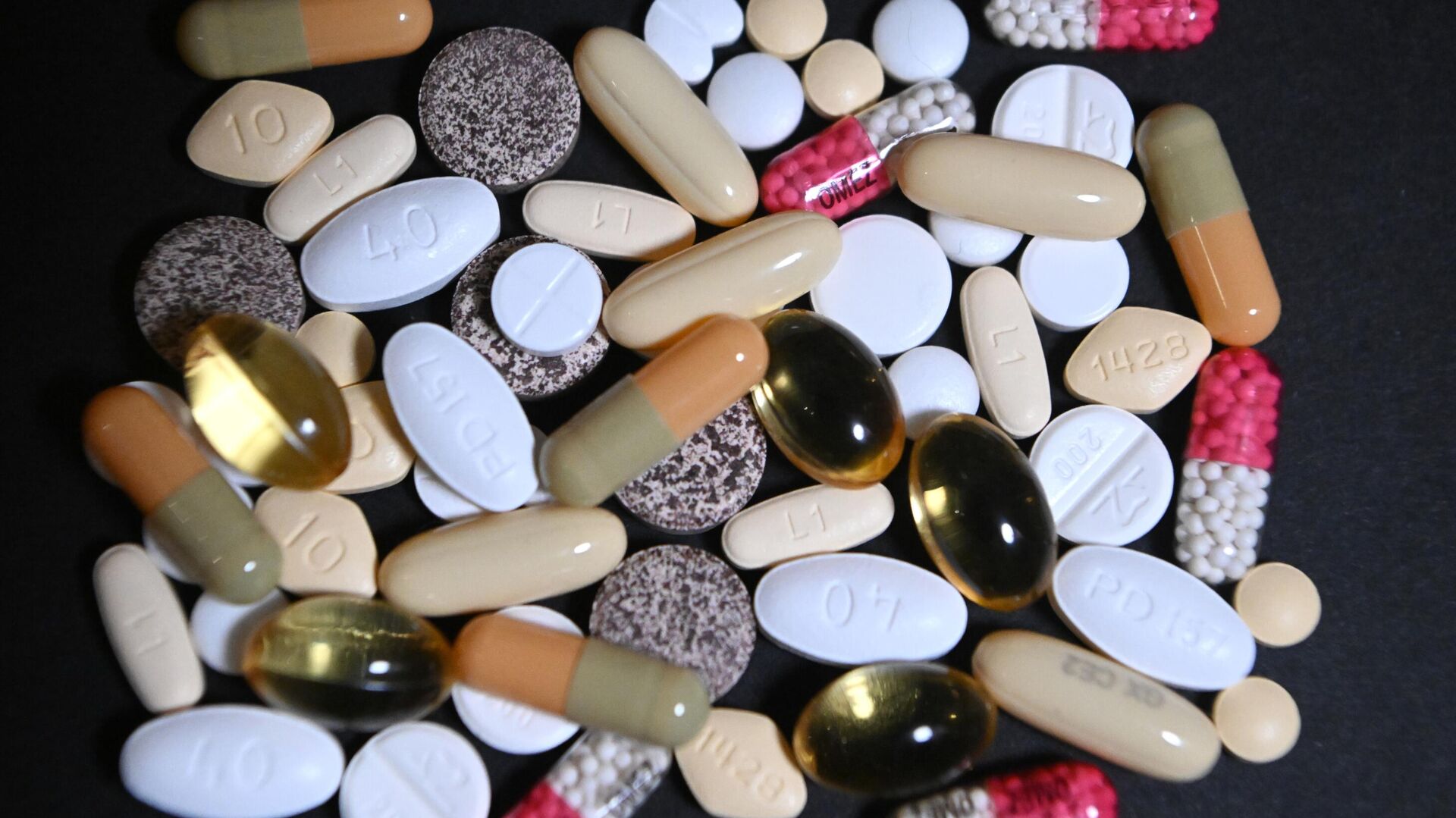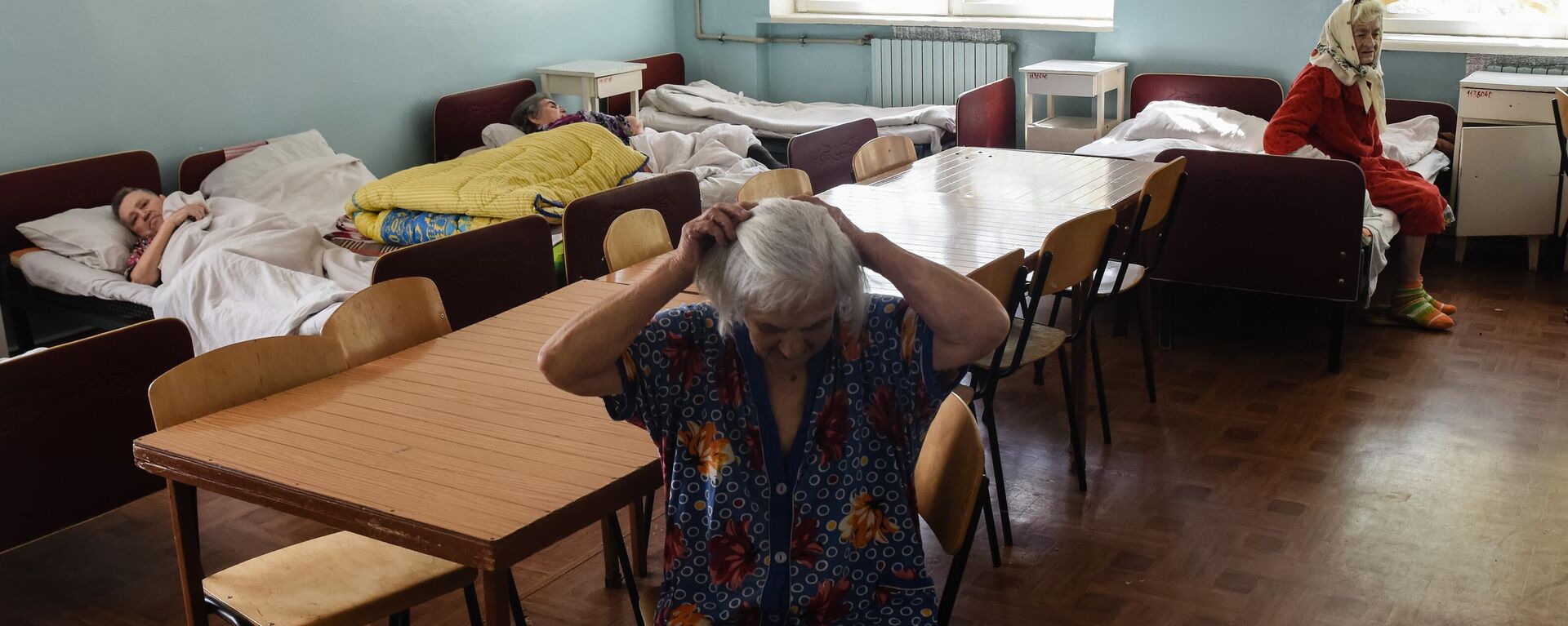https://en.sputniknews.africa/20240316/patients-in-mariupol-were-kept-in-dark-about-carcinogenic-effects-of-western-drug-1065580668.html
Patients in Mariupol Were Kept in Dark About Carcinogenic Effects of Western Drug
Patients in Mariupol Were Kept in Dark About Carcinogenic Effects of Western Drug
Sputnik Africa
MARIUPOL (Sputnik) - Documents obtained by Sputnik on Saturday showed that patients in Mariupol Hospital No. 7's psychiatric ward were not informed that a drug... 16.03.2024, Sputnik Africa
2024-03-16T08:18+0100
2024-03-16T08:18+0100
2024-03-16T08:18+0100
russia's special operation in ukraine
mariupol
united kingdom (uk)
ukraine
us dollar
switzerland
denmark
belgium
drugs
health
https://cdn1.img.sputniknews.africa/img/07e8/03/10/1065581070_0:204:2916:1844_1920x0_80_0_0_6eb3cf90dd869e2f3ab04a0191a3b003.jpg
The documents were found in the hospital basement during reconstruction works. They mainly outlined the tests of experimental drug SB4, which suppresses the action of molecules called tumor necrosis factor alpha (TNF-α) that plays an important role in the immune system and is associated with inflammation in the joints. However, impaired biological functions of TNF-α are also known to contribute to the development of malignant tumors.SB4 is produced by a number of pharmaceutical companies, including Biogen Idec Denmark Manufacturing ApS, Belgium's Catalent Pharma Solutions and Fisher Clinical Services UK Limited. South Korean biopharmaceutical giant Samsung Bioepis sponsored the tests.The documents include an investigator's brochure on SB4 in English, printed by Samsung Bioepis and marked as confidential. It said, among other things, that a "possible risk for the development of lymphomas, leukemia or other hematopoietic or solid malignancies in patients treated with a TNF-antagonist cannot be excluded." Children, adolescents and young adults up to 22 years of age treated with a TNF-α antagonist were also reported to be prone to malignancies, sometimes fatal. Other tumors potentially caused by the substance include melanoma and non-melanoma skin cancer, according to the brochure.Among the documents was also a study protocol SB4-G31-RA dated November 2013, which contained the text of the information sheet and consent form offered to experimental patients in Ukrainian and Russian. In terms of possible cancer-inducing side effects, it only mentioned that "in rare cases," up to one per 1,000 patients, another TNF-α antagonist drug, Enbrel, caused skin cancer.The documents were compiled between 2008 and 2016. Among other things, they show that drugs were also tested on infants under the age of one year.The findings also included boxes with numerous envelopes from logistics companies and containers for biological materials with recipient addresses in laboratories in Switzerland, the UK and the US.
https://en.sputniknews.africa/20240212/drugs-for-western-pharma-firms-allegedly-tested-on-mariupol-psychiatric-patients-for-years-1065035502.html
mariupol
united kingdom (uk)
ukraine
switzerland
denmark
belgium
west
south korea
europe
asia
Sputnik Africa
feedback@sputniknews.com
+74956456601
MIA „Rossiya Segodnya“
2024
Sputnik Africa
feedback@sputniknews.com
+74956456601
MIA „Rossiya Segodnya“
News
en_EN
Sputnik Africa
feedback@sputniknews.com
+74956456601
MIA „Rossiya Segodnya“
Sputnik Africa
feedback@sputniknews.com
+74956456601
MIA „Rossiya Segodnya“
mariupol, united kingdom (uk), ukraine, us dollar, switzerland, denmark, belgium, drugs, health, international, west, south korea, europe, asia
mariupol, united kingdom (uk), ukraine, us dollar, switzerland, denmark, belgium, drugs, health, international, west, south korea, europe, asia
Patients in Mariupol Were Kept in Dark About Carcinogenic Effects of Western Drug
MARIUPOL (Sputnik) - Documents obtained by Sputnik on Saturday showed that patients in Mariupol Hospital No. 7's psychiatric ward were not informed that a drug for rheumatoid arthritis tested on them by Western companies with the assistance of Ukrainian officials could potentially cause lymphatic and hematologic malignant tumors.
The documents were found in the hospital basement during reconstruction works. They mainly outlined the tests of experimental
drug SB4, which suppresses the action of molecules called tumor necrosis factor alpha (TNF-α) that plays an important role in the immune system and is associated with inflammation in the joints. However, impaired biological functions of TNF-α are also known to contribute to the development of
malignant tumors.
SB4 is produced by a number of pharmaceutical companies, including Biogen Idec Denmark Manufacturing ApS, Belgium's Catalent Pharma Solutions and Fisher Clinical Services UK Limited. South Korean biopharmaceutical giant Samsung Bioepis sponsored the tests.
The documents include an investigator's brochure on SB4 in English, printed by Samsung Bioepis and marked as confidential. It said, among other things, that a "possible risk for the development of lymphomas, leukemia or other hematopoietic or solid malignancies in patients treated with a TNF-antagonist cannot be excluded."
Children, adolescents and young adults up to 22 years of age treated with a TNF-α antagonist were also reported to be prone to malignancies, sometimes fatal. Other tumors potentially caused by the substance include melanoma and non-melanoma skin cancer, according to the brochure.
Among the documents was also a study protocol SB4-G31-RA dated November 2013, which contained the text of the information sheet and consent form offered to experimental patients in
Ukrainian and Russian. In terms of possible cancer-inducing side effects, it only mentioned that "in rare cases," up to one per 1,000 patients, another TNF-α antagonist drug, Enbrel, caused skin cancer.
The documents were compiled between 2008 and 2016. Among other things, they show that drugs were also tested on infants under the age of one year.
The findings also included boxes with numerous envelopes from logistics companies and containers for biological materials with recipient addresses in
laboratories in Switzerland, the UK and the US.



